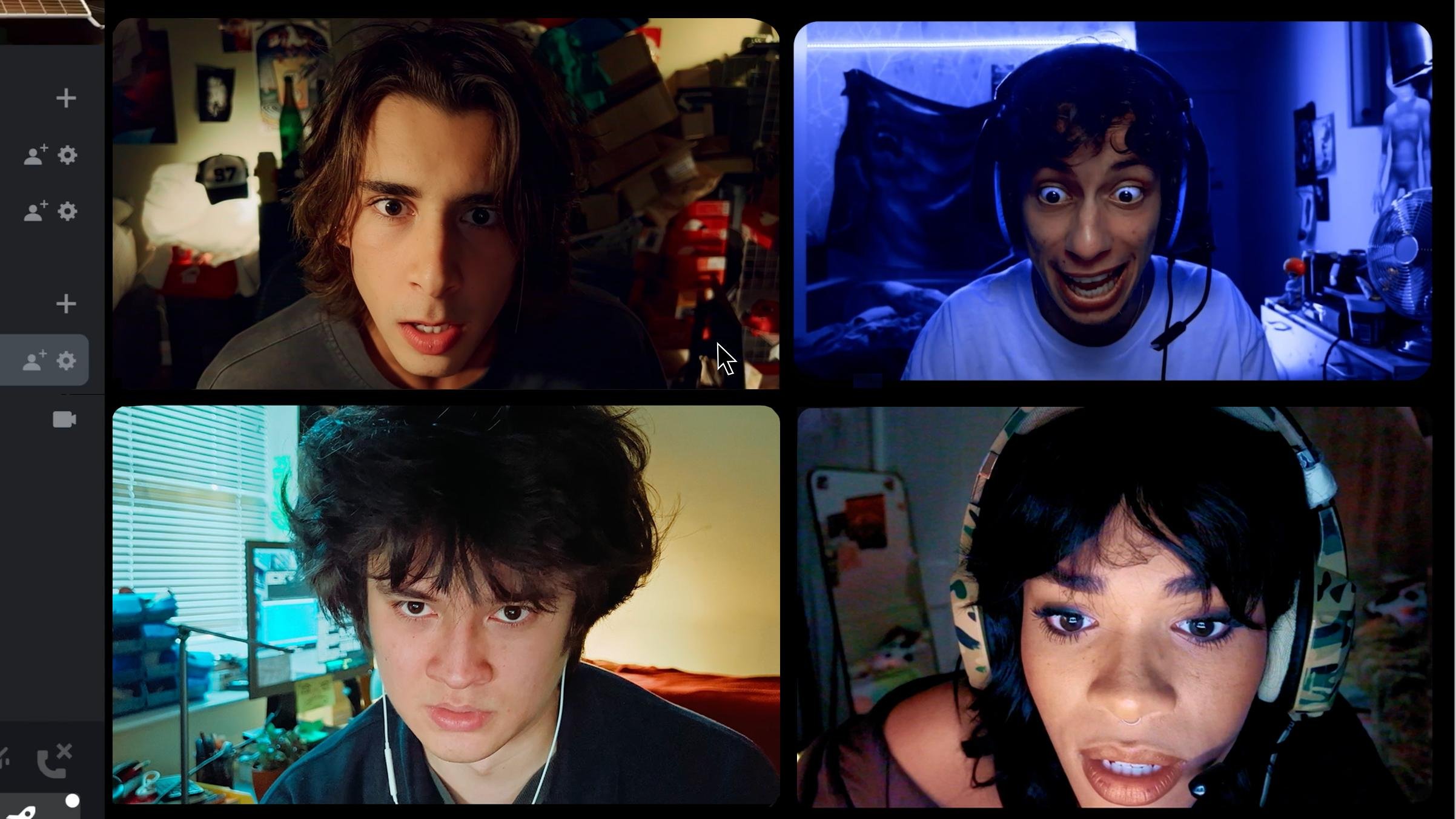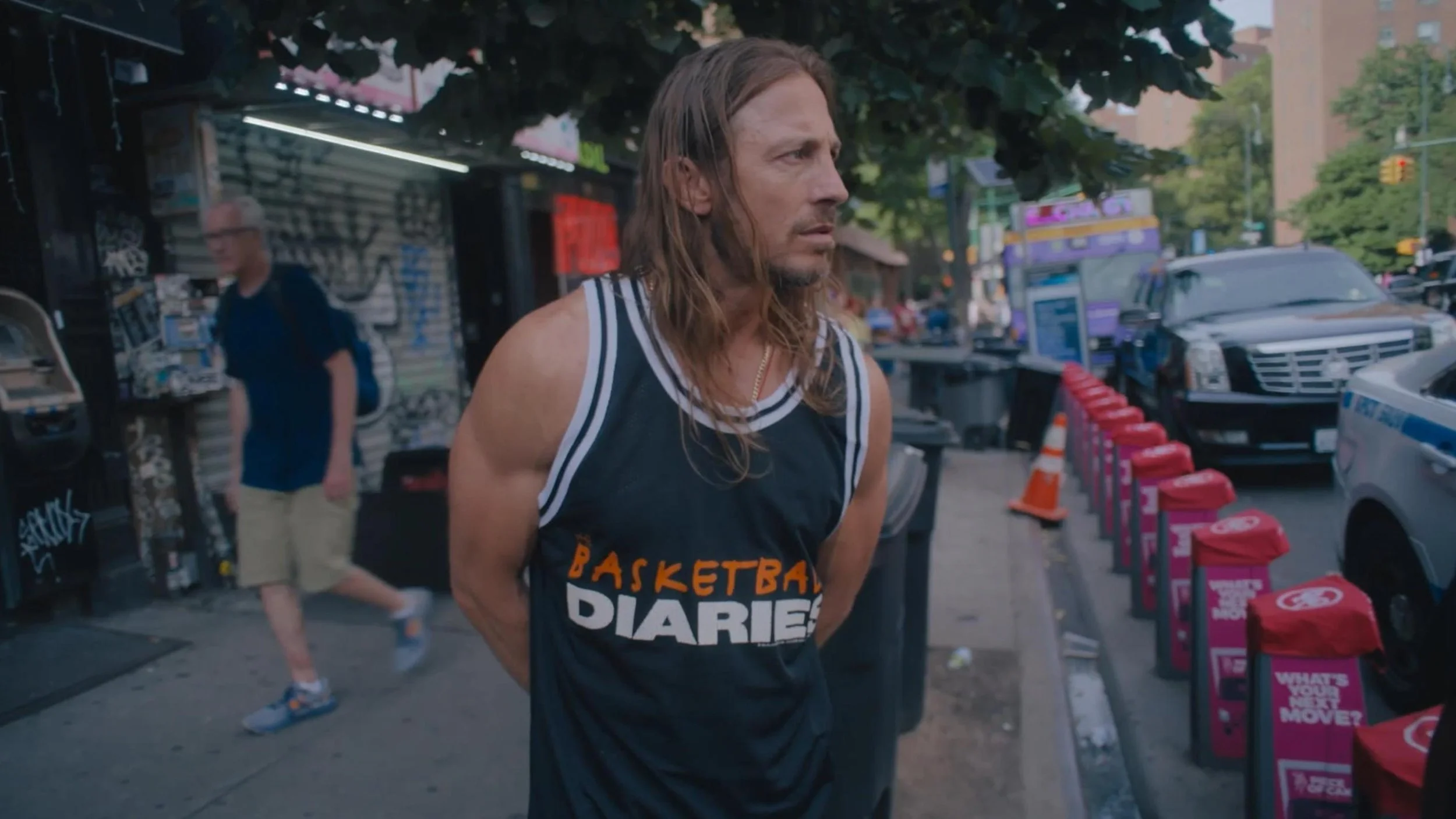
Best of SXSW: The Surprises
March 19th, 2025 / Kevin Ward
SXSW has always been a festival of discovery. While the marquee premieres and big-name projects draw the most attention, it’s often the unexpected films—the ones that creep up on you, defy expectations, or leave a lingering impression—that make the festival experience truly special. This year was no different. Beyond the buzzier titles, a handful of films stood out for their creativity, energy, and sheer originality.
Good Boy
I had Good Boy on my radar as one of the more intriguing projects to watch at SXSW, so in that sense, it wasn’t a surprise. What was a surprise, however, is just how well this concept worked. It’s honestly wild that Good Boy is the first movie to fully commit to telling a ghost story from the perspective of a family dog. We’ve all seen our pets stare at an empty corner for a little too long, their eyes tracking something we can’t see, and Good Boy takes that unnerving phenomenon and runs with it—on all fours.
Ben Leonberg directs this clever supernatural horror entirely from the eye level of Indy, a good boy in every sense of the word. The film follows Todd, who moves into a rural family home with Indy in tow, only for the loyal pup to immediately start sensing something lurking in the shadows. While Todd remains preoccupied and unaware, Indy watches, sniffs, and reacts to the presence of something sinister that refuses to reveal itself fully. This perspective turns every empty hallway, every darkened corner, and every pricked ear into an exercise in slow-building dread. It also means that the faces of the human characters are often out of frame, which only adds to the disorienting nature of the film—making the world feel unfamiliar and eerie, even when nothing overtly supernatural is happening.
The film is tense, it builds atmosphere beautifully, and it has some truly effective scares. A few more jolts would have made it even more thrilling, but even as is, Good Boy is a damn cool horror film. I could easily see this concept launching a whole new horror subgenre the way The Blair Witch Project propelled found footage into the stratosphere.
Perhaps the biggest surprise came during the Q&A when Leonberg revealed that Indy wasn’t actually trained for this type of performance. The film, shot over 400 days, is the result of extreme patience—a testament to the filmmakers’ commitment to pulling off this wildly inventive idea.
Credits: Directed by Ben Leonberg. Screenplay by Alex Cannon, Ben Leonberg. Starring Indy, Shane Jensen, Larry Fessenden, Arielle Friedman, Stuart Rudin, Anya Krawcheck, Max. US Release date: Awaiting distribution.
Credit: Good Boy
Lifehack
Lifehack, the directorial debut of Ronan Corrigan, delivers a tense, engaging screenlife thriller with a fresh take on the genre, bolstered by the expertise of Timur Bekmambetov, the producer behind Searching, Profile, and the Unfriended franchise. While it may not boast the clever twists of Missing or Searching, it makes up for it with a consistently high level of tension and a playful approach to digital-age heist storytelling.
The film follows four online friends who concoct a plan to pull off a crypto wallet heist, relying entirely on their technical prowess and ability to manipulate digital systems from behind their screens. As the scheme unfolds, unexpected complications arise, forcing the group to think on their feet in increasingly stressful and dangerous situations. While Lifehack sticks to the core conventions of the screenlife format—hopping between video calls, chat windows, security camera feeds, and real-time hacking efforts—it elevates the tension more aggressively than many of its predecessors. Rather than simply unraveling a mystery, it throws its characters into an escalating series of challenges, making for a genuinely suspenseful ride.
Lifehack wasn't in my initial viewing plans for SXSW, but there was plenty of buzz on the ground, while waiting in queues from folks who had seen it, that made me alter my schedule to work it in. Glad I did. The mechanics of the heist are well thought out. It doesn't revolutionize the screenlife genre, but Lifehack is a sharp, well-executed thriller that keeps its tension high and its stakes personal. It’s a reminder that, with the right execution, even well-worn concepts can feel fresh. If you’re a fan of the screenlife format, this one is absolutely worth checking out.
Credits: Directed by Ronan Corrigan. Written by Ronan Corrigan, Hope Kemp. Starring Georgie Farmer, Yasmin Finney, Roman Hayeck-Green, James Scholz, Jessica Reynolds, Charlie Creed-Miles, Jill Winternitz. Produced by Screenlife. US Release date: Awaiting Distribution
Credit: Lifehack
Slanted
One of the most intriguing projects on my SXSW radar, Slanted turned out to be even more surprising in execution than expected. If Mean Girls and The Substance had an Asian baby and raised her in a society ruled by white beauty standards, it might look something like this—bitingly funny, deeply poignant, and laced with an unsettling undercurrent of body horror.
The film follows a high schooler determined to win Prom Queen, despite knowing the game is stacked against her. The early scenes take their time establishing the social hierarchy, but once our protagonist makes the drastic decision to undergo a physical transformation, the film shifts into something sharper and more propulsive. The commentary on beauty, assimilation, and self-worth is clear, but what makes Slanted stand out is its attention to detail. A keen eye will catch the shifting aspect ratios that reflect the protagonist’s self-image, the clever background signage that reinforces the film’s themes, and even the school mascot as a pointed metaphor. These small but deliberate choices showcase the strong directorial hand of Amy Wang, whose debut feature arrives with an assured and distinctive voice.
Beyond its satirical edge, Slanted also delivers moments of genuine humor and discomfort in equal measure. The transformation sequences toe the line between aspirational makeover fantasy and something far more disturbing, and while Wang wasn’t able to fully lean into the body horror aspects due to producer constraints (as she revealed in the post-screening Q&A), the glimpses we do get are effective and thematically potent. There’s a real boldness to how the film confronts internalized racism and the commodification of beauty, making it more than just a darkly funny high school satire.
With Slanted, Amy Wang establishes herself as a director to watch, balancing entertainment with razor-sharp commentary. I can’t wait to see what she does next—hopefully with fewer restrictions and even more freedom to push her vision to its fullest potential.
Credits: Directed by Amy Wang. Screenplay by Amy Wang. Starring Shirley Chen, McKenna Grace, Vivian Wu, Maitreyi Ramakrishnan, Amelie Zilber, Fang Du, Elaine Hendrix, R. Keith Harris. Produced by Tideline Entertainment. US Release Date: Awaiting distribution.
Bunny
Bunny was only on my radar because of the enthusiastic word-of-mouth at SXSW, where those who had seen it were nearly universal in their praise. Quite frankly, I would say it’s the best film I watched at the festival. Director Ben Jacobsen orchestrates a delightfully anarchic ballet of mishaps and mounting absurdities, following Mo Stark’s hapless yet endearing protagonist through a day that starts in chaos and only escalates from there. The film hums with a screwball energy that borders on the absurd, a gleeful tightrope walk between madcap farce and genuine heart. I loved every '90s movie reference and how they serve as a shorthand for the filmmakers' deep love of cinema. These nods never feel like empty nostalgia but instead enrich the film’s texture.
Jacobsen revels in pushing the premise to its logical (and sometimes entirely illogical) extremes, crafting a world where every favor has a price and every seemingly small act of goodwill spirals into a tangled web of unintended consequences. The film’s community-driven chaos functions as both a safety net and an accelerant, where the eclectic mix of inhabitants in Bunny’s shared New York tenement building all factor into the chaos. Those he has tirelessly helped must now return the favor when he, in a moment of genuine crisis, finds himself needing a little help concealing, say, a body or two. The absurdity never detracts from the underlying warmth--the kind of messy, inextricable connections that define our relationships with the people around us.
Much of Bunny’s appeal rests on Mo Stark’s effortless charm. Bunny is the kind of protagonist who can barely keep his head above water yet remains impossible not to root for, even as his increasingly dire predicament unfolds. The various inhabitants of his building are an eccentric, unpredictable bunch—zany in a way that feels completely real and grounded. Jacobsen’s direction is sharp, always driving the story forward while still allowing space to sit with these vibrant characters and their quirks. The result is a film that feels like a throwback to the best of screwball comedy while still maintaining a distinctly modern sensibility.
Put this on your radar. I sincerely hope this movie goes a long way. Bunny is ridiculous in the best way possible—an absurd, big-hearted ode to the small, strange ways we take care of each other, whether we mean to or not.
Credits: Directed by Ben Jacobson. Written by Mo Stark, Ben Jacobson, Stefan Marolachakis. Starring Mo Stark, Ben Jacobson, Liza Colby, Tony Drazan, Linda Rong Mei Chen, Genevieve Hudson-Price, Liz Caribel Sierra, Ajay Naidu, Richard Price, Henry Czerny. US Release Date: Awaiting Distribution.
We Are Storror
Yet another film we featured in our Intriguing Projects preview, so perhaps I shouldn't have been surprised by We Are Storror. And yet, there’s so much about it that remains genuinely unexpected. A Michael Bay documentary? That alone is surprising. A documentary about extreme parkour? Also surprising. And yet, We Are Storror is an exhilarating watch that more than earns its place among the biggest surprises of SXSW.
Bay’s first documentary feature dives into the lives of Storror, the internationally renowned parkour collective that has pushed the limits of the sport for over a decade. The film chronicles their origins, the evolution of their gravity-defying artistry, and the personal and physical toll that comes with performing at such an extreme level. More than just an adrenaline rush, We Are Storror is a meditation on passion, risk, and the inevitable question of how long these athletes can continue before their bodies—or circumstances—force them to stop.
What makes the documentary so compelling isn’t just the daredevil stunts, though those are, of course, breathtaking. It’s the brotherhood at the film’s core, the camaraderie that has sustained them through years of defying physics. While the high-flying sequences provide jaw-dropping spectacle, the moments that resonated most for me were behind-the-scenes glimpses into their preparation. Watching them meticulously choreograph their runs, sweep away debris, and hammer potential hazards before leaping between rooftops adds an entirely new dimension to their craft. It’s not just about fearlessness—it’s about precision, strategy, and discipline.
Above all, We Are Storror is a film that demands to be seen in IMAX (fingers crossed for some kind of IMAX distribution deal). The visuals, drone shots in particular, are spectacular, capturing the sheer scale and intensity of their movements in a way that feels both exhilarating and, at times, bone-crunching. You don’t just see the jumps—you feelthem. Whether you’re already familiar with Storror or new to their world, Bay’s documentary is a must-watch, offering a thrilling, visually stunning, and surprisingly emotional portrait of a group that continues to push the boundaries of what’s possible.
Credits: Directed by Michael Bay. Starring Josh Burnett-Blake, Benj Cave, Max Cave, Callum Powell, Sacha Powell, Toby Segar, Drew Taylor. Produced by Make Make. Release date: Awaiting distribution




